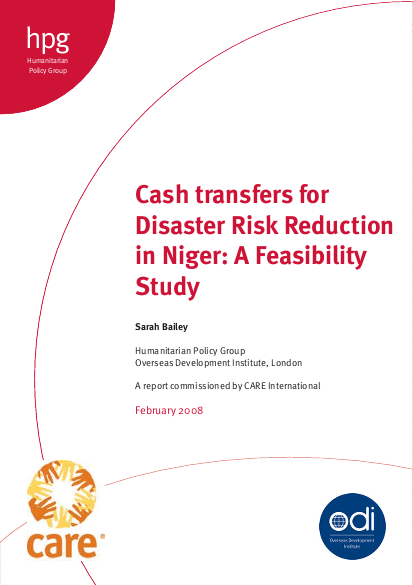
This report is the result of a study examining
whether cash transfer programmes would be
appropriate, cost-effective and feasible and
whether, as part of a Disaster Risk Reduction
(DRR) strategy, they could have positive impacts
on people’s livelihoods that would reduce their
risk to future disasters. DRR is a framework
focused on mitigating the negative impact of
future shocks and disasters and increasing the
capacity of households to cope and recover from
them. In Niger, these shocks and disasters
typically take the form of drought, poor harvests,
price increases of basic food items and,
occasionally, floods. The study also looks at
concrete design parameters for implementing
cash transfers with a DRR objective. This report
summarises the findings of a desk review and
field research conducted with CARE International
in Niger in January 2008.